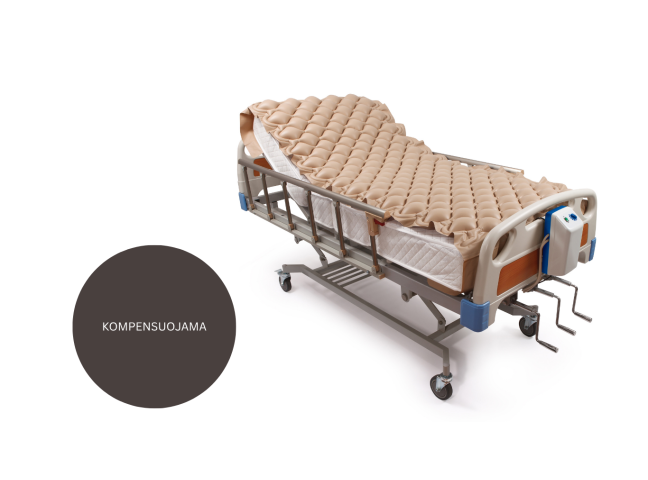What is worry and insomnia, what are their causes?
Insomnia is a sleep disorder that causes difficulties falling asleep, inability to stay asleep throughout the night, or waking up earlier than planned in the morning.
About one in three people experience acute insomnia at least once in their lifetime. It can be caused by stress, painful loss, separation, or conversely - an event that causes positive impressions.
Chronic insomnia is a more severe disorder. It often significantly affects our lives. It is diagnosed when there is difficulty falling asleep for more than 30 minutes, sleep lasts less than 6 hours, there is morning fatigue after sleep, and all these symptoms are present for more than 3 months. Symptoms recur at least 3 times a week and are not caused by poor sleep conditions.
Symptoms of insomnia:
- Frequent awakenings during the night;
- Difficulty falling asleep;
- Early morning awakenings;
- Severe fatigue;
- Decreased memory or concentration;
- Decline in academic, family, social activities, and productivity;
- Decreased motivation;
- Worry, dissatisfaction with your sleep;
- Increased irritability, mood disturbances;
- Behavioral disturbances (aggression, impulsivity, hyperactivity) in children.
Worry
Worry is a feeling of irritability, fear, concern, and anxiety. If worry has a cause, for example, before an important conversation or exam, it is a normal and adequate reaction. Pathological worry has no clear reason, is often uncontrollable, interferes with daily life, and becomes a disorder.
In addition to the strong and distressing feeling of worry, this disorder can disrupt the functioning of internal organs, cause panic attacks, intrusive thoughts, or compulsive actions.
Signs and symptoms of worry:
- Muscles tense and muscle pain occurs due to experienced worry;
- Lack of air due to worry, hands tremble, heart beats faster;
- Constant or often strong worry without a clear reason;
- Excessive worry interferes with activity or certain situations simply "paralyze";
- Belief that you suffer from serious illnesses, even after tests proving otherwise, you only temporarily relieve anxiety.
How to help yourself in dealing with insomnia and worry
It is necessary to find time to relax, exercise, and improve sleep quality. This is a very important step in dealing with worry. Physical activity that requires attention, such as yoga or vigorous exercise, can be effective in managing worry. Healthy eating, limiting alcohol or caffeine consumption, social activity also have a positive effect.
Tips for good sleep
Regularity - go to bed and wake up at the same time.
Be physically active every day, but not before bedtime. Physical activity helps sleep, but it is recommended to avoid it at least 4 hours before sleep.
Avoid caffeine and nicotine before bedtime.
Do not look at the clock. Frequent checking of the clock at night affects negative thoughts.
Sleep rituals. Daily sleep rituals will help prepare for sleep. Your rituals can be: reading, listening to relaxing music, taking a warm bath.
Avoid lying down. This will help you feel tired when it's time to sleep. If you can't avoid it, lie down only for a short time, no more than 1 hour, and do it only until 15:00.
If using these recommendations does not achieve the desired result, seek professional help from specialists who will conduct thorough examinations and prescribe appropriate treatment.
We constantly strive to improve and search for innovations that could improve the lives and daily life of our clients.

In our online store rehastar.com you can find the device "SOMNUS", which is designed to help people fight insomnia and worry.
"SOMNUS" is a new sleep aid device from "TensCare" manufacturer. It uses cranial electrotherapy stimulation (CES) to help fall asleep, reduce nighttime awakenings, and improve overall sleep quality.
This device is very easy to use, it does not take up much space. You can achieve the best results by incorporating "SOMNUS" into your daily life. Use it daily for 20 to 60 minutes. This device is not limited to improving sleep, it also alleviates symptoms of anxiety and depression.
This article is of a recommendatory nature, prepared based on research and articles. We always recommend consulting specialists first to provide professional and necessary help to improve your health and well-being.
Have questions?
If you have any questions, please contact the staff of the online store Rehastar.com by phone on weekdays from 08:00 to 17:00 or by email at any time, and we will try to respond to you as soon as possible.
Email: info@rehastar.com
Phone: +370 626 11553






